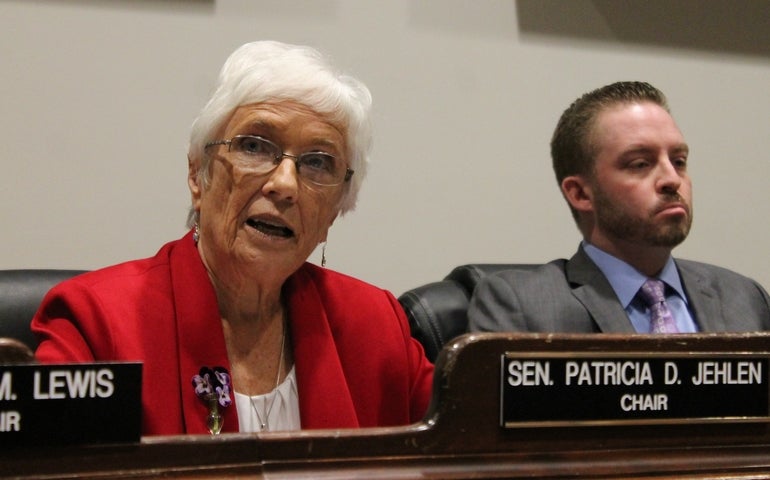The home health care workforce is in crisis due to low pay, high turnover and a lack of oversight, lawmakers and people who care for others as a career said Tuesday as they pushed legislation to raise pay for workers and establish more formal rules for the rapidly-growing industry.
The demand for home health assistants is projected to grow by 46.7% between 2016 and 2026 while the demand for personal care aides is expected to rise by 37.4%, Mass. Home Care said, citing the U.S. Bureau of Labor Statistics. But the state’s workforce — currently there are about 45,000 home care agency workers in the state — will not be able to meet that demand unless changes are made now, the advocates said.
Sen. Patricia Jehlen and Reps. Carmine Gentile and Aaron Vega pitched their legislation that would direct the state to implement a wage- and rate-setting process for home care workers who serve the elderly and people with disabilities. The bill would ensure that trained home care workers are paid at least $17.25 per hour by July 1, 2023 and then at a rate that is at least 15% higher than the state minimum wage.
Jehlen said she often thinks about the equal pay law the Legislature recently passed and the fact that, despite that law, a field that is 96% female sees its average pay lag behind fields that are dominated by men.
“What happens is the jobs that are conceived as ‘women’s work’ that are traditionally done by women — caregiving, taking care of little kids, preparing and serving food — those jobs continue to be paid less than a living wage,” Jehlen said. “So we can’t continue like this because every person here and every person you talk to today is getting older.”
Right now, certified nursing assistants like those who work in nursing homes have an average hourly wage of $16.17 per hour, personal care attendants are paid an average of $15.40 per hour, home health aides are paid an average of $14.82 per hour and homemakers average $13.98 per hour. The Jehlen/Gentile/Vega bill focuses on the jobs that work directly for home care agencies — homemakers and home health aides — and whose payment rates have not been increased since fiscal year 2015.
“We need to raise the pay so that people can do this work. The people that are doing this work are struggling to make ends meet. They can go to work at McDonald’s or Burger King and make more money or the same money, and it’s a lot easier work,” Gentile said.
FayeRuth Fisher, the Massachusetts political director for the union 1199 SEIU, told the Joint Committee on Elder Affairs on Tuesday that while pay is important and should be increased, it would not be enough to simply raise the pay for home care workers.
“When we hear stories from agencies talking about the need for home care, when we hear various home care workers in various roles talking about the need for increased pay, we would say yes and we need to strengthen the oversight and regulation of home care agencies,” Fisher said. “We know there are people doing great work out there, they’re providing care, they have transparency and they’re following the rules. But we also know that it is far too easy … for people to not do the right thing and the burden should not be on workers to come forward.”
Fisher and 1199 SEIU were on hand Tuesday to tout legislation filed by Sen. James Welch and Rep. Daniel Cullinane to require the Department of Public Health, working with the Executive Office of Elder Affairs, to establish rules and regulations for the licensing and conduct of home care aid agencies in Massachusetts, and strengthen the authority of the state’s attorney general to monitor and investigate home care agencies. It would also provide $10 million in increased reimbursements for home care agencies to pass along in their workers’ wages.
Rep. Daniel Donahue of Worcester said the legislation “brings better regulations and oversights to the quickly growing field of home care in the commonwealth.” Donahue said he became involved with the issue when home care workers in his district approached him with tales of wage theft and mistreatment on the job. He said workers were continuously unable to cash their paychecks, were not getting paid for overtime and sometimes were not paid at all.
“No one in the state knew about these actions until the workers had the courage to speak up and share their stories,” he said.
Representatives from 1199 SEIU spoke in favor of the legislation on Tuesday, telling the committee that it is critical that the state takes action now to protect and grow its home care workforce because of the Bay State’s aging population.

